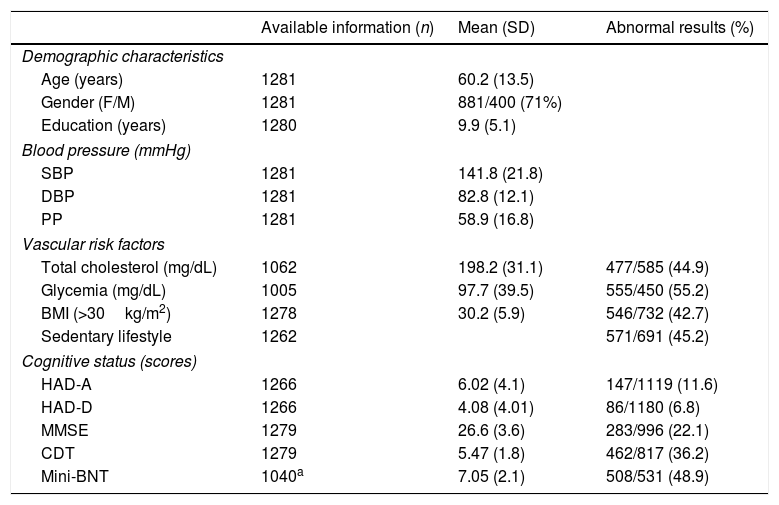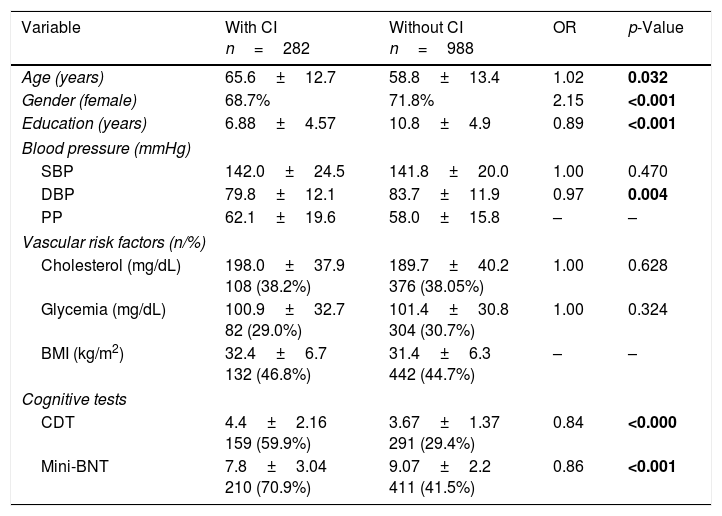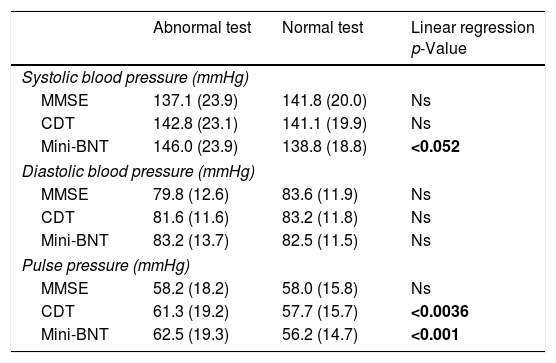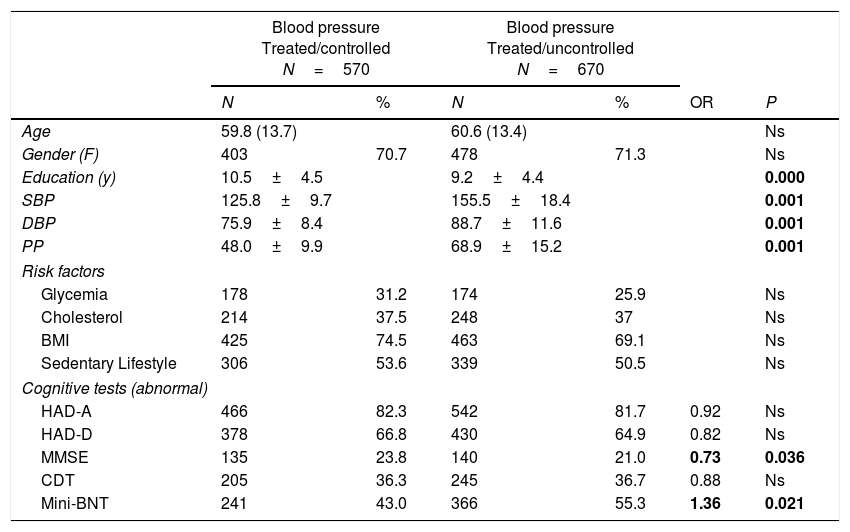The relation between hypertension and cognitive impairment is an undisputable fact. The aims of this study were to determine the prevalence of cognitive impairment in hypertensive patients, to identify the most affected cognitive domain, and to observe the association with different parameters of hypertension and other vascular risk factors. A multicentre study was carried out, and 1281 hypertensive patients of both genders and ≥21 years of age were included. Data on the following parameters were obtained: cognitive status (Minimal Cognitive Examination), behavioural status (Hospital Anxiety and Depression Scale), blood pressure, anthropometry, and biochemical profile. The average age was 60.2±13.5 years (71% female), and the educational level was 9.9±5.1 years. Global cognitive impairment was seen in 22.1%, executive dysfunction in 36.2%, and semantic memory impairment in 48.9%. Cognitive impairment was higher in males (36.8% vs. 30.06%) within both the 70–79-year-old and the ≥80-year-old (50% vs. 40%) age groups. Abnormal Clock Drawing Test results were related to high pulse pressure (p<0.0036), and abnormal Mini-Boston Naming Test results to both high systolic blood pressure (p<0.052) and pulse pressure (p<0.001). The treated/uncontrolled hypertensive group showed abnormal results both in the Mini Mental State Examination (OR, 0.73; p=0.036) and the Mini-Boston Naming Test (OR, 1.36; p=0.021). Among patients without cognitive impairment (MMSE >24), 29.4% presented executive dysfunction, and 41.5% semantic memory impairment. Cognitive impairment was higher in hypertensive patients than in the general population. Executive functions and semantic memory were the most affected cognitive domains. High systolic blood pressure and pulse pressure were associated with abnormal results in cognitive tests.
La relación entre la hipertensión y el deterioro cognitivo es un hecho indiscutible. Los objetivos de este estudio eran determinar la prevalencia de deterioro cognitivo en pacientes hipertensos, identificar el dominio cognitivo más afectado y observar la asociación con diferentes parámetros de hipertensión y otros factores de riesgo vascular. Estudio multicéntrico donde fueron incluidos 1.281 pacientes hipertensos de ambos sexos ≥21 años. Se evaluó el estado cognitivo (examen cognitivo mínimo), el estado conductual (escala hospitalaria de ansiedad y depresión) y se midió la presión arterial, la antropometría y el perfil bioquímico. La edad promedio fue de 60,2±13,5 años (71% mujeres) y el nivel educativo de toda la muestra fue de 9,9±5,1 años de estudio. El deterioro cognitivo global fue del 22,1%, el compromiso de la función ejecutiva del 36,2% y de la memoria semántica del 48,9%. El deterioro cognitivo fue mayor en varones (36,8 vs. 30,06%), en los grupos de edad de 70 a 79 años y >80 años (50 vs. 40%). El resultado anormal del test del reloj se relacionó con la elevación de la presión sistólica (p<0,052) y la presión de pulso (p<0,001). El grupo de hipertensos tratados/no controlados mostró resultados anormales tanto en el Mini Examen del Estado Mental (OR: 0,73; p=0,036) como en el Test de Denominación Mini-Boston (OR: 1,36; p=0,021). Entre los pacientes sin deterioro cognitivo (Mini Examen del Estado Mental >24), 29,4% presentó disfunción ejecutiva y 41,5% de deterioro de la memoria semántica. En conclusión, el deterioro cognitivo fue mayor en los pacientes hipertensos que en la población general. La disfunción ejecutiva y la memoria semántica fueron los dominios cognitivos más afectados. La presión sistólica y la presión de pulso elevadas se asociaron con resultados anormales en pruebas cognitivas.











